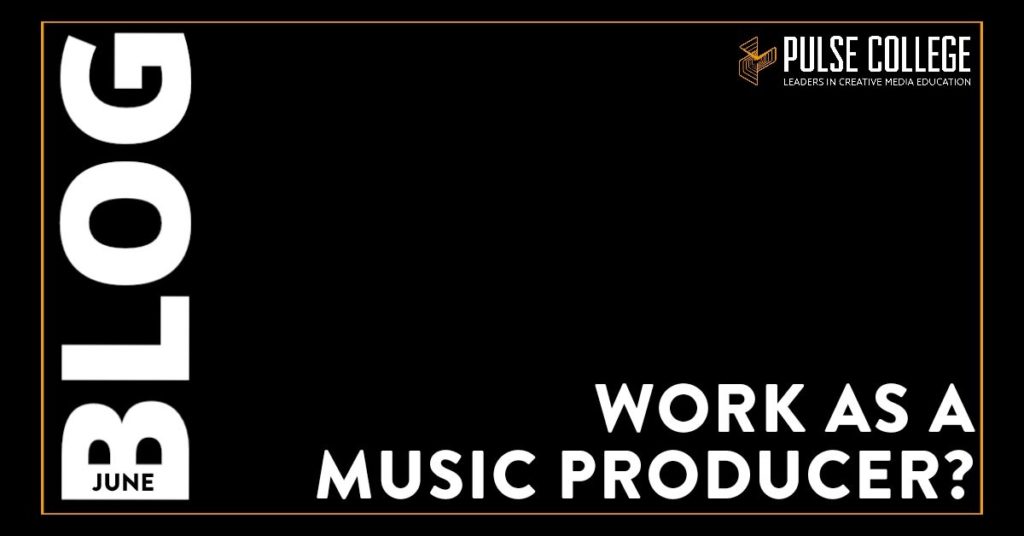It’s not easy, but without a doubt, music production can be one of the most rewarding careers in music today. It’s extremely dynamic and constantly evolving. In this article we cover what it takes to be a music producer and how you can get started in this career.
What Music Producers do?
Music producers generally focus on 2 key main areas. The Business and the Creative. In one sense you’re like a director on a film and ultimately responsible for delivering a completed and marketable recording that’s on time and on budget. That’s the business side. The creative side is the process in which you make this a reality. You generally work with the artist to go from concept to reality. Let’s delve a little deeper.
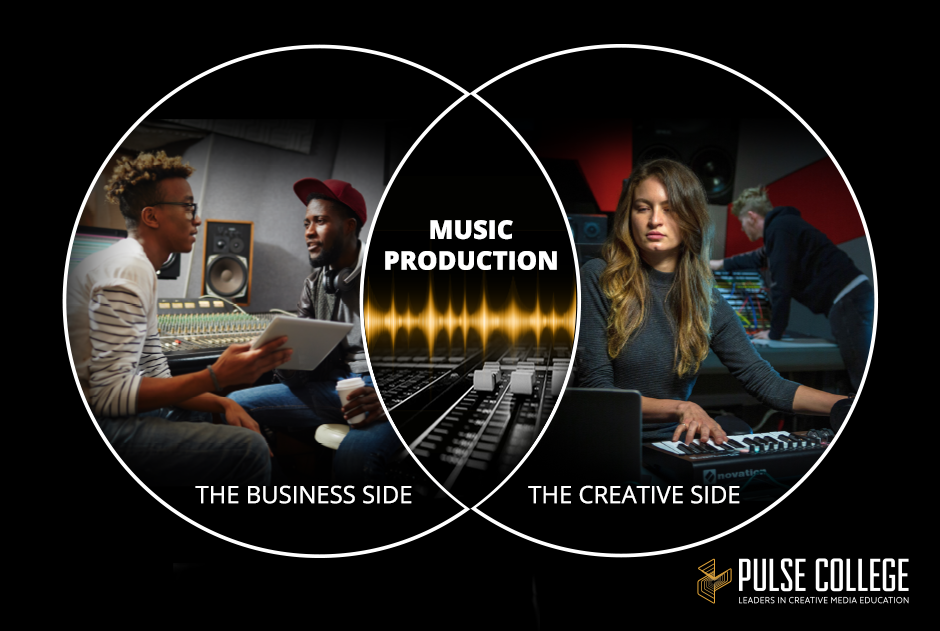 .
.
What does it take to be a Music Producer?
A lot of things! The reality is to be a top music producer today means you must be able to wear a lot of different hats. Of course, you get better with time and experience. Let’s look at some of the most important ingredients in becoming a music producer.
1) Mentality
To thrive in this area, you’re going to need a holistic mindset. As there are a lot of mini-roles and touchpoints, embracing the learning curve is going to be fundamental. As you are essentially acting as a project manager, going between artists, engineers etc you are going to need to know a little bit of everything. Seeing the overall big picture of a project from concept to final product is key and involves a lot of steps along the way.
For this reason, you will want to be in it for the long haul. Cultivating different skills takes time. So developing breadth in your range of skills will be integral to your long-term success.
2) Learn an Instrument(s)
This follows on from the above point of broadening your knowledge. You don’t need to be a master violinist (because then you would be focusing more on becoming an artist/performer than a producer right?)… But by learning to play 1 or more instruments to a decent level… you broaden your music production skills so much more.
You’ll be able to relate more effectively to the artist and give your take. Maybe you think the guitar take needs to be done in another cord (or whatever it may be) and you can jump in a give a quick example. By having that inside knowledge, you work more effectively in achieving the end-result – a great piece of music.
So what instruments should you learn? Well there’s no hard and fast rules, but something like the piano or the guitar can be great places to start.
3) Learn the Technology
Like most industries, music has moved on greatly in recent years with the constant evolution of technology. That means to not only survive but also thrive in this sector – you will need to keep up with the tech. Whether that is Apple’s logic Pro X, Ableton Live or learning Avid Pro Tools, there are many possible tools and technologies that a modern music producer can take advantage of.
In particular, getting familiar with a Digital Audio Workstation or DAW (i.e. all the tools mentioned above) will be integral to you becoming the best music producer you can be. Going deep on your preferred one will be a vital part of your process.
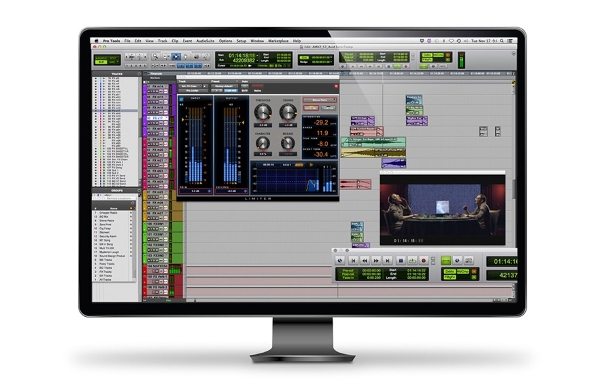
4) Create, Create, Create
It’s one thing to read about a DAW and know the ins and outs – but ultimately the only way to really improve your knowledge is to create something. And create a lot! Like anything, you need to put in the reps to start seeing results. It’s a process that of course takes time, but there are no shortcuts to mastery of your subject domain.
Also as you go through this process, you will realise there are certain things you like and don’t like. By getting your hands dirty, you are increasing your own self-awareness of what you need to work on and what you can leverage more of in your music production skillset.
Also and critically, you not only improve your work but also your chances of landing work. How many artists hire music producers with no previous work to show? Odds are very little. By building a portfolio of work, you are improving your knowledge AND building your own personal brand.
5) Go Deep in your overall music understanding
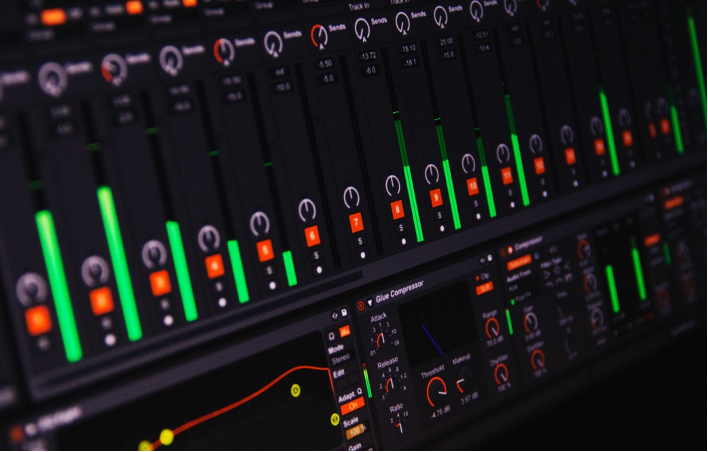
Remember when we said it’s good to have a holistic mindset and skillset? You do? Excellent..
While you might want to focus on one area, for example Hip Hop, by listening to and dissecting other genres, you are improving your own knowledge. Essentially by training your ear to pick up on the subtleties of different sounds from different niches of music – you are sharpening your own skills when it comes to working back in the studio.
Of course, this truly is a never ending process, but the more you listen – the better you get. Knowing rhythmic theory, cadence etc all help deepen your knowledge.
So the next time you are listening to a track, put in the extra effort to understand what music production decisions are being made and why. It could be something as minute as low-level background noises. Why do you think it’s there and could it be improved?
This kind of inner-dialogue and critical thought will really help to push you further up the pack of budding music producers
6) Know what Music Production is and isn’t.
With the rapid evolution of tech, you can now produce music from your own laptop. This has massively lowered the barrier of entry. However with that, the lines have arguably been blurred somewhat into what music production can actually be defined as. Nowadays, it’s quite possible to make beats and pass them onto a friend.
But does that make you a music producer? The reality is, that is a great place to start (remember -create, create, create! You learn by doing).. however there is so much more to music production that just that. And crucially to be a top music producer, there is a lot more to it – as explained above.
So just keep in mind the breadth of skills when it comes to music production. Yes there is the creative side and working in the trenches with the artist and engineers. But there is also the important task of creating something you can sell and promote on time and on budget. This takes a certain business acumen too. So in sum, it’s not just ‘making some beats’.
6) Pick the Right Course
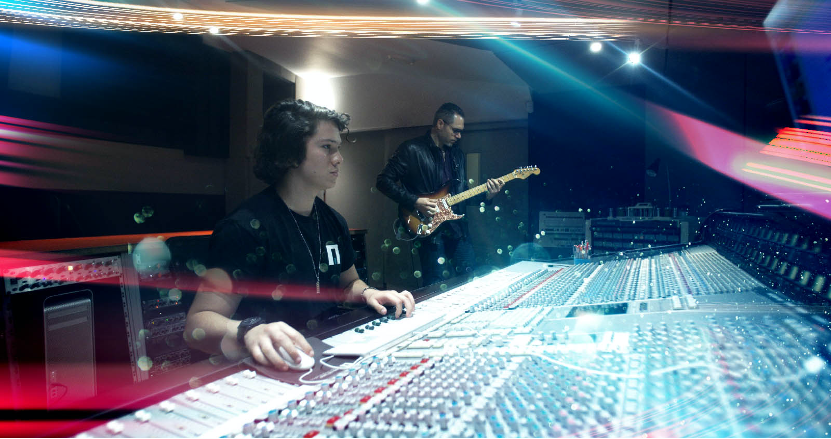
Doing all the above is not a simple check-box. Much of it is ongoing and can be a lifetime’s work. However to kickstart your career and streamline your progress in music production – you can attend a music production course.
Introducing the BA (Hons) Degree in Music Production – Why study?
Here at Pulse College, we specialise in helping you get started as a music producer. Here’s how you can benefit:
- You’re learning from those with experience – It’s taught by passionate Industry Professionals
- You’ll have access to State of the Art Facilities – including access to the iconic Windmill Lane Recording Studios
- The curriculum is taught to international industry standard
- Guest Industry talks and lecturers
- Use of industry relevant software applications
- Master the DAW. Pulse College is an Apple Logic Pro Certified Centre and Avid Pro Tools Centre
- 24 hour studio access
- Build an extensive Portfolio (Remember create, create, create!)
- Become a member of our Creative Community
For full course details check out the music production course page
Final Words – Is Music Production a Good Career?
Yes it can be a very rewarding career. Helping an artist turn a concept into a real-life piece of music is a very rewarding process. There is a learning curve, but if you have a passion, patience and perseverance, you too can go a very long way in this career.
If you have questions about any of our audio courses, then please get in contact with us.
